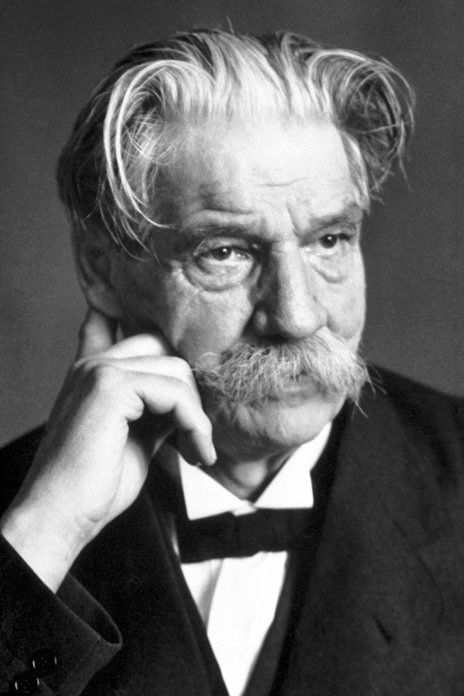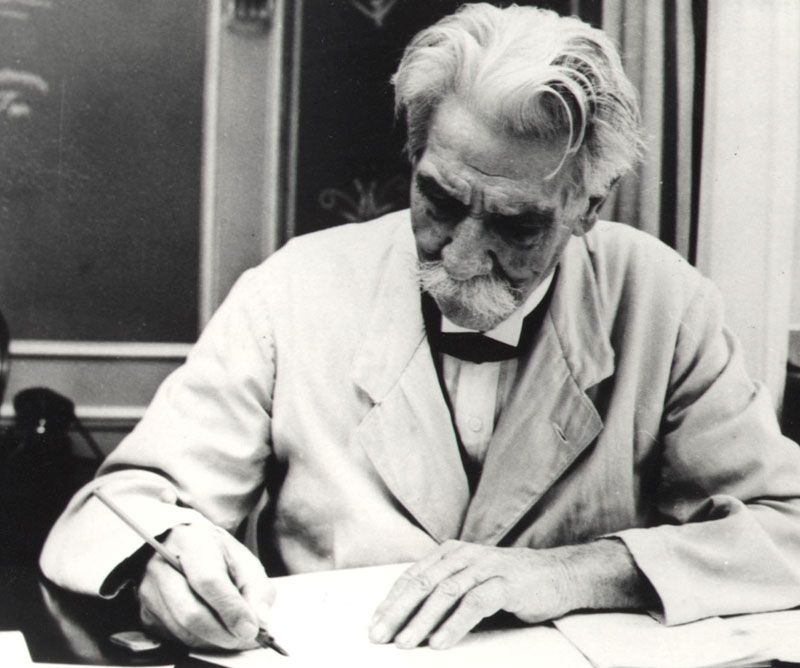Discover the inspiring life and legacy of Albert Schweitzer — doctor, philosopher, musician, and Nobel Peace Prize winner — who devoted his life to compassion and service.

Early Life and the Making of a Humanitarian
Albert Schweitzer was born in 1875 in the town of Kaysersberg, in the Alsace region. From a young age, he showed a deep love for learning and a sensitive heart. He was a brilliant student who studied theology, philosophy, and music. Schweitzer was also an expert organist, passionate about the works of Johann Sebastian Bach.
But his curiosity didn’t stop there. He pursued medicine in his 30s, a rare choice for someone already established in philosophy and theology. Why? Because he wanted to serve people directly — not just with ideas but with real help.
The Calling to Africa
In 1913, Schweitzer left Europe and sailed to Lambaréné, Gabon, to set up a hospital in the remote African jungle. His mission was clear: to bring modern medicine to people who had little or no access to it.
The work was hard. He faced limited supplies, tropical diseases, and challenging living conditions. Still, Schweitzer never gave up. He treated thousands of patients, often working day and night. His care was famous for combining skill with kindness — he saw every patient as a human being deserving respect.
He wrote,
“The only ones among you who will be really happy are those who will have sought and found how to serve.”
“Reverence for Life”: A Guiding Philosophy
Schweitzer’s greatest contribution to the world is his ethical philosophy called “Reverence for Life.” It is a simple but profound idea that calls for respect for all living beings — humans, animals, and plants alike.
He believed that ethical living means caring for life in every form. This belief inspired many modern environmental and humanitarian movements.
He said,
“Ethics is nothing other than Reverence for Life. Reverence for Life is the fundamental principle of morality.”
This philosophy makes us ask: How can we live in a way that harms no one and helps as many as possible?
A Nobel Peace Prize and Worldwide Impact
In 1952, the world recognized Schweitzer’s work with the Nobel Peace Prize. He humbly accepted, saying the award was not just for him but for everyone committed to peace and kindness.
His life reminds us of other great humanitarians, such as A.P.J. Abdul Kalam, who also combined simple living with big dreams of service.
More Than a Doctor: A Man of Many Gifts
Albert Schweitzer was not only a healer of bodies but also a healer of souls. He was a passionate musician, playing the organ with great skill and studying Bach’s music deeply. Schweitzer believed that music connects us to a higher spiritual plane and brings peace to troubled hearts.
If you want daily inspiration to find beauty and joy, read about The Man Who Made Every Day a Beautiful Day.
Courage in Action: Fighting Injustice and Suffering
Schweitzer’s dedication to human dignity echoes the courage shown by Thurgood Marshall, the legendary lawyer who fought racism with unwavering determination.
Both men showed us that standing up for justice and serving humanity requires bravery, compassion, and lifelong commitment.
Schweitzer’s Wisdom for Our Time
Today, Schweitzer’s teachings are more relevant than ever. The world faces many challenges — climate change, inequality, conflict. His call for “Reverence for Life” pushes us to rethink how we treat our planet and each other.
His message urges us to
- Protect all forms of life,
- Act with kindness every day,
- Serve others with humility and love.
To stay informed about global humanitarian efforts and inspiring leaders like Schweitzer, visit www.america112.com.
Final Thoughts: A Legacy of Love and Service
Albert Schweitzer’s life is a beautiful example of how one person’s compassion can touch millions. He said,
“Example is not the main thing in influencing others. It is the only thing.”
Let his story inspire you to live with empathy, dream with purpose, and serve with your whole heart.

